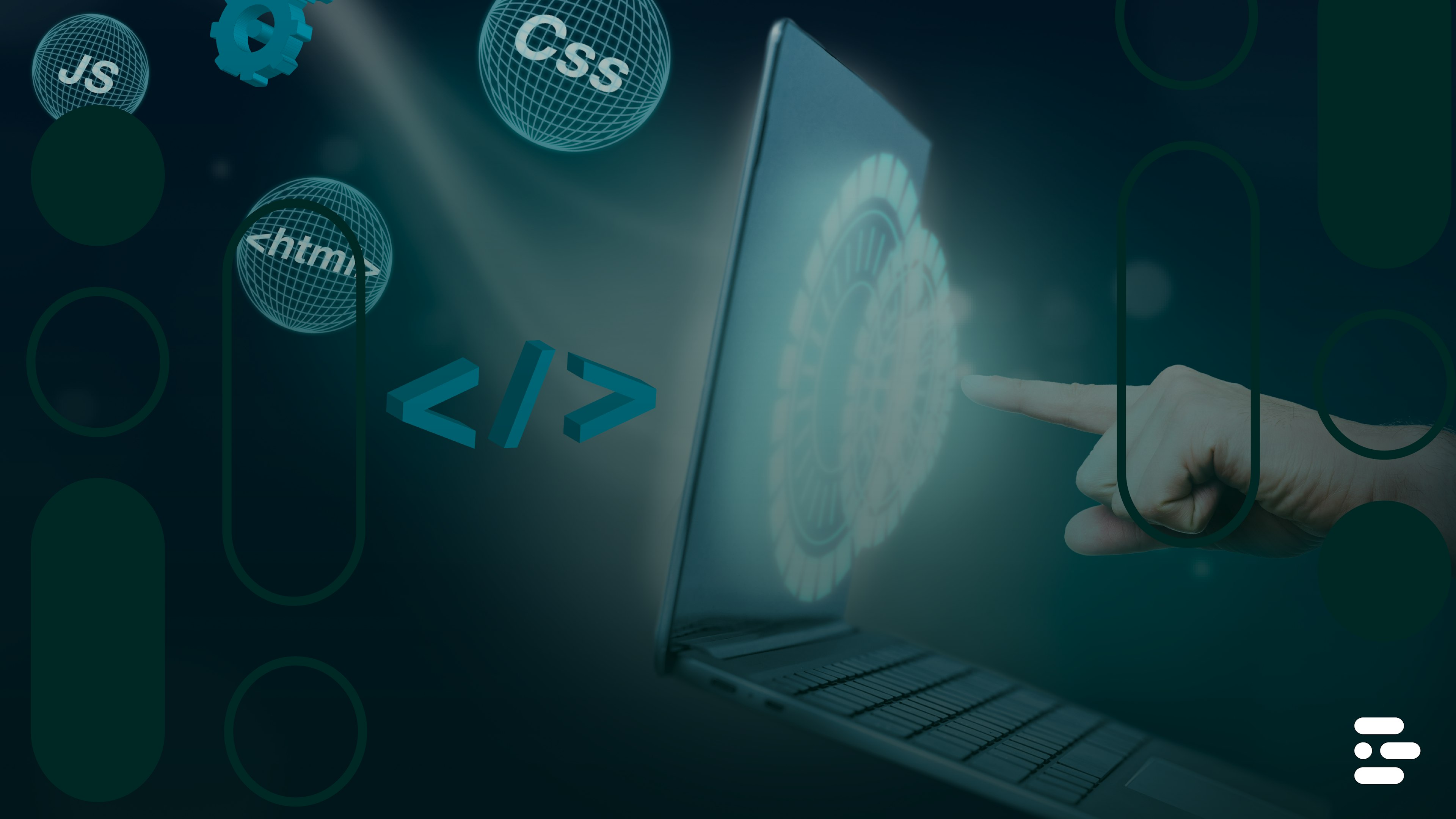The Power of Decentralized Identity in Driving Digital Business Transformation


In today's rapidly evolving digital landscape, businesses constantly seek innovative solutions to navigate the industry's complexities. One particular solution that has gained considerable attention is the concept of decentralized identity. This new technology has the potential to revolutionize the way businesses operate, transforming the digital experience for both consumers and organizations.
Uncover the Latest Technology Trends
Exploring the latest technology trends shaping the digital landscape is essential to truly understanding the power of decentralized identity. These trends, from artificial intelligence and machine learning to the Internet of Things, provide the foundation for adopting a decentralized identity.
Artificial intelligence (AI) and machine learning (ML) are transforming data analysis and security in decentralized identity systems. AI-powered algorithms can detect anomalies and potential security threats, ensuring a more secure and reliable identity verification process. ML can assist in adaptive authentication, learning from user behavior to provide more accurate and secure access controls.
The Internet of Things (IoT) is another technology trend revolutionizing service delivery. Businesses can gather real-time data and automate processes by connecting devices and sensors, increasing efficiency and improving customer experiences. Decentralized identity is crucial in securing these IoT networks, ensuring that only authorized devices and users can access sensitive information.
By leveraging these technologies, businesses can build more secure, scalable, and efficient systems for managing digital identities.
The Future of Services in the Tech Industry
As businesses embrace digital transformation, "the tech industry plays a crucial role in shaping the future of services." Organizations can streamline operations, enhance security measures, and create more personalized customer experiences by leveraging decentralized identity.
Artificial intelligence (AI) is a critical technology leading the future of services in the tech industry. With AI-powered chatbots and virtual assistants becoming increasingly common, businesses can provide their customers with round-the-clock support and personalized recommendations. Machine learning algorithms enable organizations to analyze vast amounts of data, uncovering valuable insights that can drive business growth and innovation. Decentralized identity enhances these processes by ensuring the security and privacy of the data being used.
The Internet of Things (IoT) is transforming service delivery. By connecting devices and sensors, businesses can gather real-time data and automate processes, increasing efficiency and improving customer experiences. Decentralized identity ensures that only authorized devices and users can access these IoT networks, providing a secure and reliable environment for data exchange.
Discovering Resource Hubs for Tech Enthusiasts
In the quest for knowledge and growth, tech enthusiasts often turn to resource hubs that offer a wealth of information and support. These hubs serve as a central repository of educational content, discussion forums, and collaboration platforms, fostering continuous learning and innovation in decentralized identity.
For those looking to deepen their understanding of decentralized identity, online communities and resource hubs provide essential information and opportunities. They offer educational content on the technical aspects of decentralized identity, from blockchain fundamentals to security protocols. These groups also offer a space for individuals with similar interests to come together, ask questions, and exchange ideas.
Online tutorials and courses are another valuable resource. They provide step-by-step guides and interactive lessons, allowing people to learn about decentralized identity and related technologies at their own pace. These tutorials cover various topics, from coding languages to data analysis techniques, catering to the diverse interests of tech enthusiasts.
Essential Publications and Tools for Tech Professionals
To stay ahead in the fast-paced tech industry, professionals must have access to essential publications and tools that focus on decentralized identity. From influential industry publications to cutting-edge software development kits, these resources empower tech professionals to stay up-to-date with the latest trends and advancements in decentralized identity.
Industry publications are crucial in keeping tech professionals informed about the latest developments in decentralized identity. These publications often feature in-depth articles, interviews with industry experts, and case studies that showcase innovative solutions. By subscribing to these publications, tech professionals can expand their knowledge and gain valuable insights into the potential and challenges of decentralized identity.
Software development kits (SDKs) specific to decentralized identity platforms provide tools, libraries, and documentation that enable developers to create applications that leverage this technology. By leveraging SDKs, tech professionals can accelerate the development process, reduce errors, and ensure compatibility with the latest software updates related to decentralized identity.
Unlocking Valuable Insights in the Tech World
The tech world is teeming with valuable insights waiting to be unlocked. By leveraging decentralized identity, businesses can tap into a wealth of data and analytics, gaining valuable insights to drive informed decision-making and fuel business growth.
Data analytics is a powerful tool that allows businesses to extract meaningful information from large datasets. Organizations can identify patterns and make data-driven decisions by analyzing customer behavior, market trends, and operational metrics. Decentralized identity ensures the integrity and security of this data, enabling businesses to leverage analytics for strategic planning and optimization confidently.
Furthermore, decentralized identity facilitates collaboration and data sharing among different stakeholders. By securely exchanging information, businesses can gain a holistic view of their ecosystem, uncovering insights that would be otherwise inaccessible. This collaborative approach fosters innovation and enables organizations to stay ahead of the competition.
Building a Strong Foundation for Decentralized Identity
Before fully embracing a decentralized identity, organizations must prioritize building a solid foundation. This involves establishing robust security protocols, developing clear governance frameworks, and fostering a culture of trust and transparency.
Prioritizing security when it comes to decentralized identity is crucial. Organizations must implement encryption, multi-factor authentication, and other advanced security measures to protect user data and prevent unauthorized access. They must also conduct regular security audits and vulnerability assessments to identify and address potential weaknesses within the system.
Clear governance frameworks are also crucial for the successful implementation of decentralized identity. Organizations must define roles and responsibilities, establish data sharing and access control guidelines, and ensure compliance with relevant regulations. By setting clear rules and procedures, organizations can mitigate risks and ensure the smooth operation of decentralized identity systems.
Lastly, it's crucial to establish an environment of trust and openness when embracing decentralized identity. Companies need to inform their employees and stakeholders about the advantages and values of decentralized identity and resolve any worries or misunderstandings. By encouraging transparent communication and teamwork, companies can establish trust among users and stakeholders, laying the foundation for widespread acceptance.
Exploring the Potential of Blockchain Technology
Blockchain technology lies at the heart of decentralized identity. By leveraging blockchain's immutability, transparency, and security, organizations can create an ecosystem where identity verification and data exchange can occur seamlessly, revolutionizing business.
Blockchain technology provides a decentralized and tamper-proof ledger that records all transactions and interactions within a network. This ensures data integrity and transparency, removes the need for intermediaries, and reduces the risk of fraud. Decentralized identity systems built on blockchain can enable secure and efficient identity verification, eliminating the need for traditional centralized identity providers.
Moreover, blockchain technology enables individuals to control their identity and data. With decentralized identity, users can selectively share their personal information with trusted parties, maintaining privacy and reducing the risk of data breaches. This shift in control empowers individuals and enhances their digital sovereignty.
In conclusion, the power of decentralized identity is undeniable. By embracing this technology, businesses can unlock new opportunities, enhance operational efficiency, and deliver exceptional digital experiences. As the digital landscape continues evolving, decentralized identity is a transformative force driving digital business transformation.
Subscribe to our newsletter
Stay informed with the latest insights and trends in the industry
Content
You may also like


